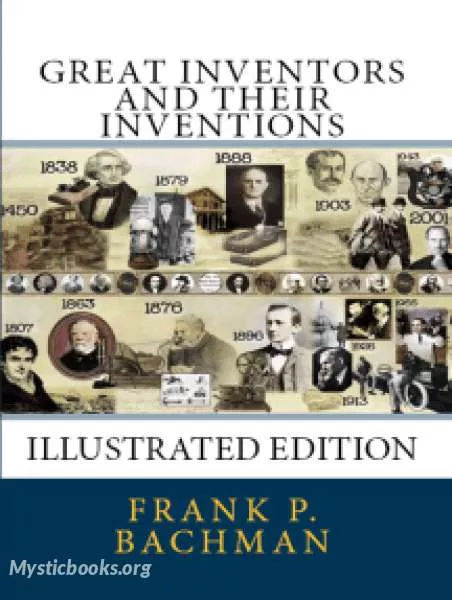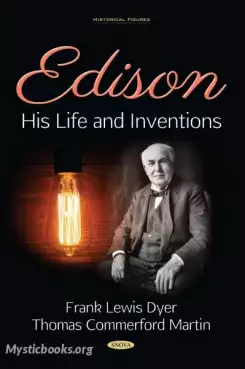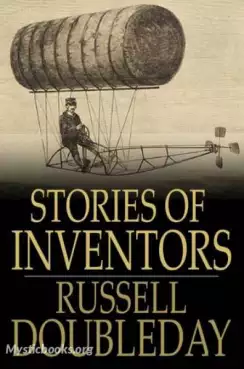
Great Inventors and Their Inventions
'Great Inventors and Their Inventions' Summary
The first boat used by man was probably the trunk of a fallen tree, moved about by means of a broken branch or pole. Then some savage saw that a better boat could be made by tying a number of logs together to make a raft. But rafts are hard to move, so the heart of a log was hollowed out by means of a stone ax or fire, to make a still better boat, or strips of birch bark were skillfully fastened together to form a graceful canoe. Boats were constructed also of rough-hewn boards. With such primitive craft, voyages of hundreds of miles were made up and down great rivers like the Mississippi, or along the shores of inland seas like the Great Lakes.
The Phœnicians were the first great sailors. Their boats, called galleys, were sometimes two to three hundred feet long. These were of two kinds, merchantmen and war vessels. The merchantmen were propelled partly by sails and partly by oars, but on the war vessels, when in battle, oars only were used. On a single boat there were often several hundred oarsmen or galley slaves. These galley slaves were as a rule prisoners of war. They were chained to the oar benches, and to force them to row, they were often beaten within an inch of their lives. In enormous sail-and-oar vessels the Phœnicians crossed the Mediterranean in every direction, pushed out into the Atlantic Ocean, and went as far north as England.
The chief improvement in boat making, from the time of the Phœnicians until the first trip of the Clermont, was to do away with oars and to use sails only.
Book Details
Language
EnglishOriginal Language
EnglishPublished In
1918Download eBooks
Listen/Download Audiobook
- Select Speed
Related books

Romance of Modern Chemistry by James C. Philip
This book offers a captivating look back at the state of chemistry a century ago, providing a non-technical explanation of how chemical forces influen...

Fifty Years Ago by Walter Besant
Fifty Years Ago by Walter Besant is a historical memoir that presents a picture of life, manners, and society in Great Britain during the mid-19th cen...

The Moors in Spain by Stanley Lane-Poole
The Moors in Spain: A fascinating and sweeping tale of the Muslim conquest of Spain and its legacy. The Moors in Spain is a classic history book by S...

The Great Events by Famous Historians, Volume 05 by Charles F. Horne
Embark on an extraordinary expedition through time with "The Great Events by Famous Historians, Volume 05," a captivating anthology masterfully curat...

National Geographic Magazine Vol. 07 - 03. March 1896 by National Geographic Society
The National Geographic Magazine, an illustrated monthly, the March Number. It includes the following articles, along with a few miscellaneous notes:...

Careers of Danger and Daring by Cleveland Moffett
In this volume of adventure the author depicts the lives of certain humble modern heroes whose unconscious courage ordinarily goes unnoticed. Mr. Moff...

Makers of Many Things by Eva March Tappan
Published in 1916, *Makers of Many Things* by Eva March Tappan is a children's book that delves into the fascinating world of everyday objects. It exp...

History of The New York Times, 1851-1921 by Elmer Holmes Davis
This book provides a comprehensive history of The New York Times from its founding in 1851 to 1921. Davis, a three-time Peabody Award winner, provides...

Edison, His Life and Inventions by Frank Lewis Dyer
Edison – His Life and Inventions by Frank Lewis Dyer and Thomas Commerford Martin, published in 1910 was in fact a biography commissioned by Edison hi...

Stories of Inventors by Russell Doubleday
Doubleday chronicles the history of everyday inventions that form the foundation of technology now common through the world. While some of the inventi...
Reviews for Great Inventors and Their Inventions
No reviews posted or approved, yet...